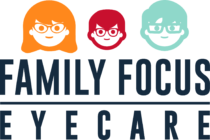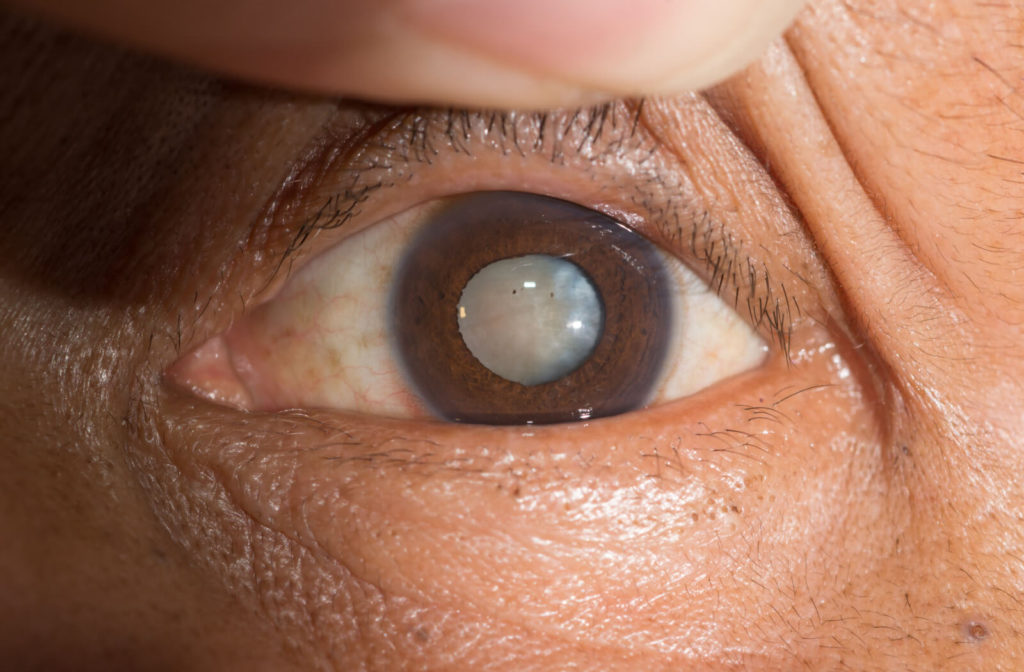Cataracts, an eye disease characterized by the clouding of the eye’s natural lens, are a common occurrence as we grow older.
Given enough time, most individuals will develop some degree of cataracts in their lifetime.
However, the development and progression of cataracts depend on various risk factors, and not everyone may need surgery. Regular eye exams can help detect the early development of cataracts.
What Are Cataracts?
Cataracts refer to the condition characterized by the clouding of the natural lens in the eye. This condition is commonly age-related and can cause blurred or hazy vision, increased sensitivity to light, and difficulty seeing at night.
There are approximately 20 million people blind from cataracts globally, many of whom do not have access to affordable cataract treatment.
What Age Do Cataracts Usually Start?
Cataracts are primarily an age-related condition. While some people may develop cataracts in their 40s or 50s, these are usually small and do not affect vision. It is after the age of 60 that cataracts tend to become more visually significant. However, they can sometimes develop at a much younger age as well.
What Are the First Signs of Cataracts?
The first signs of cataracts can include:
- Blurred or hazy vision
- Increased sensitivity to light and glare
- The need for brighter light for reading
- Fading or yellowing of colors
- Difficulty seeing at night
These symptoms may, at first, only affect a small part of one’s visual field and may not be noticeable.
The most common cause of cataracts is aging. As we age, the proteins in our eyes can clump together, forming a cloud over the lens. Other causes can include diabetes, smoking, prolonged exposure to sunlight, and certain medications.
Can Cataracts Be Prevented?
Cataracts cannot be prevented, but certain steps can be taken to slow their development. Wearing sunglasses and a hat when outdoors, eating nutritional foods that are rich in antioxidants, and avoiding smoking can all help preserve vision and slow the progression of cataracts. Regular eye exams with an optometrist can also help detect the presence of cataracts.
If Cataracts Are Detected, What Treatment Is Available?
The standard treatment for cataracts is surgery. During cataract surgery, the affected lens is removed and replaced with an artificial lens known as an intraocular lens (IOL). Depending on the severity of the cataract, glasses may be used to improve vision after surgery. In some cases, laser or other forms of corrective surgery may be used to restore vision. Your optometrist can discuss the best treatment options for your specific case.
It is important to see your eye doctor regularly for check-ups to monitor the progression of cataracts. This is especially important if you are at high risk of developing cataracts, such as those with diabetes or who have experienced a head injury in the past.
Your optometrist can determine if there are any changes in your vision due to cataracts and recommend an appropriate treatment plan.
At What Stage Should Cataracts Be Removed?
There is no definitive stage at which cataracts should be removed. The decision for surgery is usually based on the extent to which cataracts are affecting one’s quality of life. If cataracts are causing troublesome symptoms such as difficulty with daily activities like reading and driving, or if they are interfering with the treatment of other eye problems, cataract removal may be recommended.

How Do You Prevent Cataracts from Becoming Worse?
While there is no guaranteed way to prevent cataracts, certain lifestyle choices can help slow their progression. These include maintaining a healthy diet rich in vitamins C and E, avoiding smoking, controlling blood sugar levels, and having regular eye examinations.
Wearing sunglasses when outdoors can help reduce the risk of cataracts. Wearing a hat with a wide brim is also recommended to protect your eyes from UV light.
What Is the Greatest Risk Factor for Cataracts?
Age is the greatest risk factor for developing cataracts. More than half of all Americans aged 80 or older either have cataracts or have had cataract surgery. Other risk factors include diabetes, smoking, prolonged exposure to sunlight, and the use of certain medications.
Care & Treatment for Your Cataracts
While not everyone may need surgery for cataracts, they are a more common occurrence as we age. Regular eye check-ups and a healthy lifestyle can go a long way in managing cataracts and maintaining good eye health.
Come visit us at Family Focus Eyecare in Columbia and Eldon, MO. If you suspect you may be developing cataracts, book an appointment for a comprehensive eye exam today.



